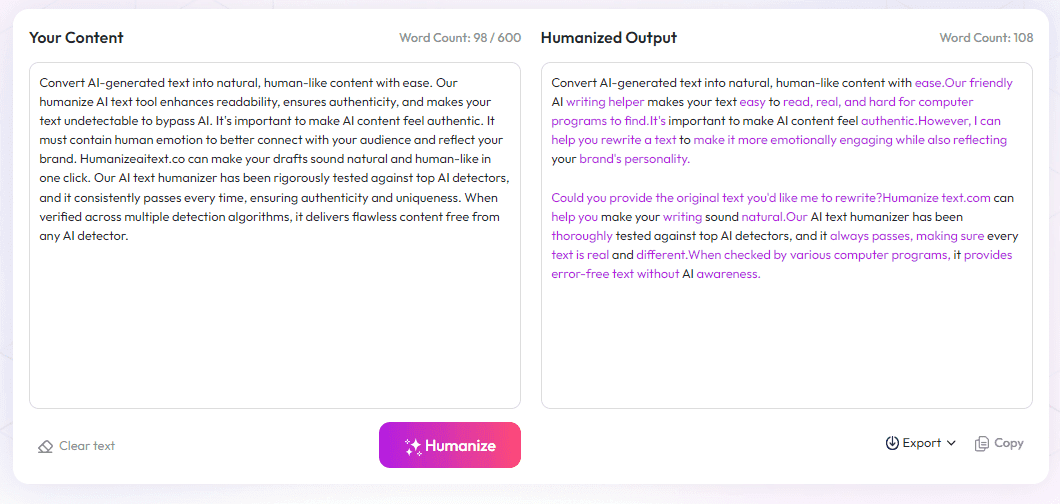Table of Contents
Looking for the best summer writing courses for 2025? I get it – finding the right program can feel overwhelming with so many options out there. Stay with me, and I’ll help you see which courses stand out and could be just what you need to boost your writing skills this summer.
If you keep reading, you'll get a clear list of top-rated courses to consider, making your choice easier and less stressful. In the end, you'll have a better idea of where to spend your summer shaping your words and having fun doing it.
Here's a quick preview of the best summer writing courses for 2025 lined up just for you.
Key Takeaways
Key Takeaways
- There are many summer writing programs for young writers in 2025, suitable for different ages and goals. Look for courses that focus on your interests, like poetry, fiction, or publishing.
- Top programs include Kenyon Review, Iowa Young Writers’ Studio, CSSSA, and University of Illinois camps, offering both in-person and online options with small group feedback.
- Early application and understanding program deadlines are key, as spots fill quickly. Prepare writing samples and personal statements carefully to stand out.
- Advanced courses provide mentorship, manuscript reviews, and industry tips, great for teens serious about becoming published authors.
- Writing retreats in inspiring locations can give a fresh boost to your creativity, offering focused writing time and opportunities to connect with other writers.
- Choosing the right course depends on your age, learning style, and what you want to achieve. Research programs’ reviews and instructor backgrounds to find the best fit.
- Financial aid and scholarships are often available—apply early and check for additional funding options to make attending more affordable.

List of the Best Summer Writing Courses for 2025
Looking to boost your writing skills this summer? The good news is that a variety of top-notch programs are available in 2025, catering to young writers and aspiring authors alike. Whether you're a high school student dreaming of becoming a novelist or a young poet ready to refine your craft, there's a course that fits your goals and schedule.
The most sought-after summer writing experiences often combine expert instruction, inspiring environments, and hands-on projects. For instance, the Kenyon Review Young Writers Workshops stand out as a premier choice. They offer two sessions in late June and July, designed specifically for high school sophomores and juniors between 16 and 18. These workshops usually host small cohorts of around 12-14 students, allowing for personalized feedback and community building. The residential options cost approximately $2,575, while online courses are about $995 per week. Application deadlines are tight—March 1 for residential stays and April 14 for online sessions—so planning ahead is key.
If you're into poetry, fiction, or even TV writing, the Iowa Young Writers’ Studio offers immersive 2-week programs, both in person and virtually. They focus on creative exploration, allowing students to dive into different genres and develop their unique voice. This program is perfect for young writers who want a focused, intensive experience without leaving their homes.
For talented young writers eager to explore multiple styles, the California State Summer School for the Arts (CSSSA) provides a rich environment for fiction, poetry, non-fiction, and dramatic writing. Since its start in 1987, CSSSA has built a reputation for nurturing creativity and honing craft through mentorship and peer collaboration.
Another excellent option is the University of Illinois Writing Project Young Writers Camps. Set at the college’s Urbana-Champaign campus, these camps run in July for students in grades K-3 and 7-11. With sessions from July 21–25 and July 28–August 1, they offer a hands-on approach to storytelling, with classes running from 9 am to 3 pm. Spaces are limited, so securing your spot early is advised.
Choosing the right summer writing course depends on your age, goals, and preferred learning style. Popular programs are filling quickly, so it’s a good idea to start your application process early. If you want to learn how to craft compelling stories or improve your poetry, these courses can offer invaluable guidance. Plus, they often include opportunities to connect with like-minded peers and experienced instructors, creating a supportive environment for growth.

Advanced Summer Writing Programs for Aspiring Teen Authors
If you're a teen with a serious passion for writing, there are programs designed to push your skills further. Many of these include mentorship opportunities, manuscript critiques, and real-world publishing tips. Programs like the Best Publishers for New Authors sometimes partner with teenage writers, providing insights into the publishing industry. Some programs also feature guest speakers who are professional authors, providing inspiration and practical advice. Look for workshops that offer personalized feedback on your work, as that’s often where the biggest growth happens. Starting early with these intensive courses can really give you an edge if you're considering a future as a published author.
Top Creative Writing Retreats Around the World
If you're looking for an experience beyond a traditional classroom, a writing retreat can be an ideal choice. These retreats often take place in inspiring locations, like beachside cabins, mountain lodges, or historic towns, giving you an immersive environment to focus on your craft. Many retreats include daily writing sessions, group critiques, and casual meet-and-greets with other writers. Places like popular retreats globally offer options for writers of all levels, from beginners to seasoned pros. Participating in one of these can provide a fresh perspective and a chance to reset your creative energy.
How to Choose the Right Summer Writing Course for You
Picking the right program can sometimes feel overwhelming with so many choices out there. Start by clearly defining what you want to get out of the experience—are you looking to improve your poetry, learn the craft of storytelling, or understand the publishing process? Consider your age, schedule, and budget too, as some courses are more intensive and expensive than others. Look for programs that have experienced instructors and positive reviews from past participants. It’s also worth checking if the course offers opportunities for feedback or collaboration, which can be key for growth. Be proactive and reach out to program coordinators if you have questions; they’re usually happy to help you find the best fit.
Tips for Applying to Summer Writing Programs
Applying to top programs often requires more than just filling out an application form. Start by preparing samples of your work—whether that's a few poems, a short story, or a chapter from a novel—showing your best writing. Many programs ask for personal statements or essays explaining why you're interested; keep these genuine and focused. Be mindful of application deadlines, which can be as early as March or April, and don’t wait until the last minute. If possible, ask a teacher or mentor to review your application and provide feedback before submitting. A well-crafted application can make a big difference, so take your time to showcase your personality and passion for writing.
Financial Aid and Scholarships for Summer Writing Camps
Summer programs can be a significant investment, but there are often scholarships or financial aid options available. Many institutions and organizations recognize talented young writers and want to support their development. Check the program’s website for instructions on applying for scholarships—some require an additional essay or portfolio. It's also worth looking into local arts councils, community foundations, and writing organizations that may offer funding. Applying early is a good idea since scholarships tend to fill quickly. Remember, receiving aid can make a big difference in making a fantastic writing experience accessible.
FAQs
Summer writing courses help improve writing skills, expand creativity, and build a strong portfolio. They also provide opportunities to connect with others and receive feedback from experienced instructors, preparing students for future academic or professional writing endeavors.
Consider your writing interests, skill level, and goals. Review course syllabi, instructor credentials, and participant feedback. Choosing a program with flexible schedules and relevant focus areas ensures a beneficial learning experience tailored to your needs.
Yes, many summer writing courses are designed for all skill levels, including beginners. They often start with foundational techniques and gradually build up to more advanced concepts, making them accessible and valuable for newcomers to writing.



